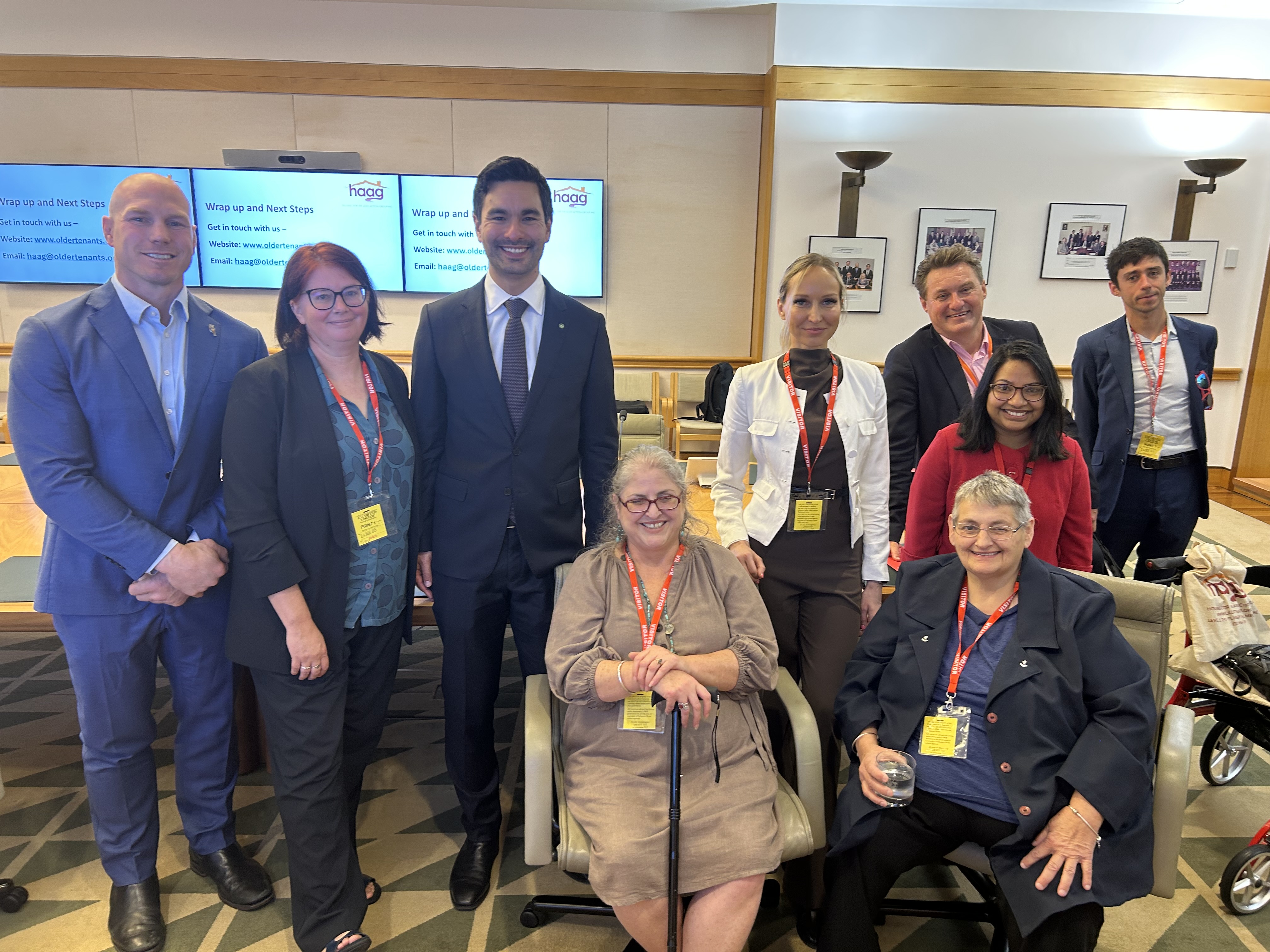New report: Older People Suffering in Poor Quality, Expensive Housing
Swinburne University and Housing for the Aged Action Group released a new report at Parliament House in Canberra today, showing that across the country, older people are increasingly facing multiple, overlapping forms of housing precarity, with serious impacts on their health and wellbeing. Older renters face the greatest risk, living in housing insecurity in unaffordable and poor condition homes, and older women disproportionately affected.

“The research, based on the newly released Australian Housing Conditions Dataset, offers a new lens on multidimensional housing precarity for ageing Australians. It reveals stark differences in the experience of retirement for people across housing tenures. Understanding how housing tenure, affordability, and dwelling conditions interact is critical for supporting secure and healthy ageing,” states co-author of the report Dr. Piret Veeroja, from Swinburne’s Housing, Homelessness and Urban Studies Research Group.
Housing for the Aged Action Group, who commissioned the report, says that this report highlights the crucial link between housing, health and ageing well.
“Every day, we see older people suffering in poor-quality and expensive housing, unable to pay the bills and struggling with mental and physical ill health. We urgently need action from all levels of government to support older people in unaffordable and poor quality housing, both in private rental and in mortgaged homes,” states Fiona York, Executive Officer.
Key findings:
- Nearly one third of older private renters in homes that are both unaffordable and in poor condition, nearly double the rate of older mortgage home owners
- Financial hardship is most acute for older renters living in unaffordable, poor-condition homes
- Across both mortgage and private rental, older women are over-represented in unaffordable, poor-condition homes
- Negative impacts on physical and mental health, finances and social life are most pronounced among older people in unaffordable, poor-condition homes
- Damp, mould, leaks and structural problems affect a large share of older mortgaged households and private rental households in poor-condition housing
The report calls for targeted assistance for older people in precarious housing, stronger rental standards, and further investment in affordable and appropriate housing supply.


 "There is nothing like staying at home for real comfort."
"There is nothing like staying at home for real comfort."